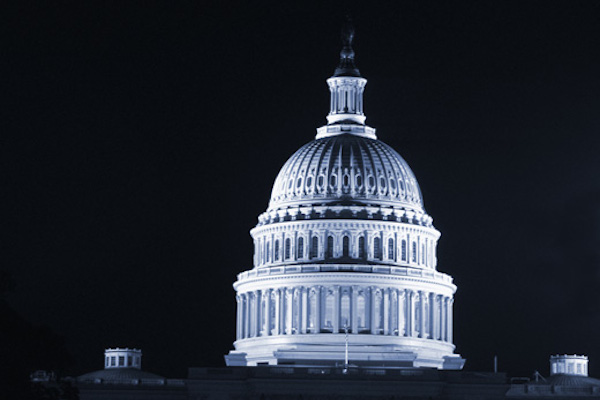I, for one, am shocked that a young caucus of people raised by Reagan to believe government should be abolished is having trouble governing.

I, for one, am shocked that a young caucus of people raised by Reagan to believe government should be abolished is having trouble governing.


Ronald Reagan campaigning with Nancy Reagan in Columbia, South Carolina. Oct 10, 1980. (Credit: Reagan Presidential Library)
“Getting trapped in Reagan’s ideological framing” is a theme you can probably expect me to continue to expand upon soon, but I wanted to quote some key passages from an excellent article from July by economist George R. Tyler (formerly of the U.S. Treasury Department), to help set the stage for my future arguments on this point:
…a host of proposals to address wage stagnation and the ensuing economic malaise of middle- and working-class Americans.
Few quibble with the problem, and a host of constructive solutions have surfaced…
Good ideas all, but they share a common framework provided by Reaganomics in which returns to labor are ultimately dictated by market forces. […]
Government wage subsidies, educational enhancements, daycare and the other economic menu offerings shuffle income from taxpayers and employers to the middle class. Yet […] the salad bar contains no market disruptors, the essential ingredient to restoring middle class prosperity.
The reforms are offered within the conceptual framework provided by Reaganomics that eschews market disruptors.
[…]
American middle-class prosperity is being held hostage by Reaganomics. Only when reforms offered by Democrats move beyond that conceptual framework by linking wages to productivity can its prospects brighten.
Various specifics come up in Tyler’s article (and many of his other articles) with regard to wages, of course.
But the bigger picture point here is a good one that many Democrats should do well to take a harder look at: Are we on the left no longer seriously pushing big and transformative ideas because we’re still trapped inside an ideological box (or Overton Window) framed by the rhetoric and views of Ronald Reagan and his legion of devotees now in government?
Even many dedicated progressive policymakers, policy developers, and policy activists are perhaps still too constrained in what they imagine in possible and are reluctant to push back — and to push the American people to see government as possible solution and partner, not as the source of all ills like the Reagan Revolution insisted.
Again, more on this down the line, but I want to get the ball rolling with the quotes above.
A new Citizens for Tax Justice / US PIRG study of IRS/SEC filings indicates that 358 of the 500 largest companies in the United States are stashing $2.1 trillion in legal tax havens.
The lost U.S. tax revenue from just 57 of them who admitted the difference in what they would have paid on those profits without havens versus what they actually paid (legally!) was $184.4 billion in total. The report then extrapolates that the lost U.S. tax revenue from the full Fortune 500 due to offshore tax avoidance may be around $620 billion total, or $90 billion yearly over the period in which the untaxed offshore stash was earned.
The tax haven countries themselves often have yearly GDPs smaller than the profits supposedly being “earned” in those countries by the “subsidiaries” of US megacorporations “based” in those countries.
Also:
Between 2008 and 2014, the study added, the amount of offshore cash holdings for American multinationals doubled.
Ah, I guess big U.S. firms can’t hire more people or pay better wages (duly earned through higher productivity!) because they “only” have over $2 Trillion in offshore savings. You see, it’s very tough as American megacorporations to pay living wages when you’re collectively only avoiding $90 billion a year in taxes.
Meanwhile, a major Democratic Party candidate for president wants to give tax breaks to big firms to pay workers more fairly, even though they already legally skip $90 billion annually in taxes now.
This is ludicrous. You don’t pay companies to do things they need to do anyway. You really don’t do it when they’re effectively stealing tax revenue now. As the head of the World Bank just said, legal tax avoidance schemes are a form of corruption. This needs to end. It just does.
Posted by Bill on behalf of the team.

Topics: The Future of Wages; Burkina Faso shakes off a coup; emerging movements in the Republican and Democratic presidential races. People: Bill, Kelley, Nate. Produced: September 13th and October 4th, 2015.
Episode 145 (56 min):
AFD 145
– What is the future of living wage laws?
– What can Burkina Faso’s resistance to a coup tell us about transitions to democracy in poor countries today?
– Can anyone save the Republican field from itself? Can Sanders prevail over Clinton after all?
– The Globalist (by Bill): Op-Ed: “The Future of Living Wages”
– AFD: “Short-lived Burkina Faso Coup had very little support”
– AFD: “Procedurally, GOP nomination is within Trump’s reach”
RSS Feed: Arsenal for Democracy Feedburner
iTunes Store Link: “Arsenal for Democracy by Bill Humphrey”
And don’t forget to check out The Digitized Ramblings of an 8-Bit Animal, the video game blog of our announcer, Justin.
Podcast: Play in new window | Download
Subscribe: RSS
Many people seem frustrated by “politics” and increasingly express a desire to “depoliticize” things large and small, as if everything would be better if politics were taken out of it.
Here’s the reality: Politics is the mechanism by which we shape and register our policy preferences and priorities, including what we as a whole self-governing society choose to invest in and emphasize from among competing options. Policy without politics is possible but never leads anywhere good in the long run. In the end, policy without politics would merely be one faction’s unchallenged implementation of their own priorities and beliefs without popular consent.

Cape Cod and Plymouth (NASA Satellite image, April 1997)
In November 1620, the Mayflower was bound for Virginia but found itself diverted by storms to what is now Massachusetts. The leadership on board made a decision to establish a colony there instead of attempting to continue to the Mid-Atlantic. They also made a hasty decision to draw up their own emergency charter for a new, separate colony. While this may have been a bid to retain control over a ship full of passengers who weren’t all part of the religious mission or colonial vision of the elites leading the mission, the result was the Mayflower Compact. The lost original document likely occupied a single page in large handwriting. Yet in that limited space, it explained the premise and goal for any future governmental structures or laws in the colony: a just and equal self-governance dedicated to the common good.
We also know approximately what it said. Here is an excerpt from the core of The Mayflower Compact:
“Having undertaken, for the glory of God, and advancement of the Christian faith, and honor of our King and Country, a voyage to plant the first colony in the northern parts of Virginia, do by these presents solemnly and mutually, in the presence of God, and one another, covenant and combine our selves together into a civil body politic, for our better ordering and preservation and furtherance of the ends aforesaid; and by virtue hereof to enact, constitute, and frame such just and equal laws, ordinances, acts, constitutions and offices, from time to time, as shall be thought most meet and convenient for the general good of the Colony, unto which we promise all due submission and obedience.”
While that’s pretty easy to read for an early 17th century charter, it also certainly is still a bit confusingly written and “old-timey.” Here is my attempt at a somewhat cleaned up and streamlined paraphrasing of the key objectives that could also be applied in a more general context:
Those present — solemnly and mutually, in the presence of one another — covenant and combine ourselves together into a civil body politic, for our better ordering and preservation. [For this purpose, we pledge to] enact, constitute, and frame such just and equal laws, ordinances, acts, constitutions, and offices as shall be thought most convenient for the general good, unto which we promise all due submission and obedience.
This, in essence, means that government is a mutual compact between a collective of people. They promise each other that this government will be dedicated to establishing order in and ensuring the survival of society. To achieve this, the government must be based on laws, ordinances, acts, and structures which apply equally and justly to everyone in the society and which promote the “general good.” And to make it all work, everyone promises to submit to this rule of law and follow the order established by this collective government, as far as was reasonable to expect. (The words “all due” before “submission and obedience” — in my opinion — qualify that it is not requiring unlimited obedience without challenge to unjust authority.)
At the time, of course, they meant this self-government really to apply to wealthy and free men aboard the ship. But as you can see, they never actually specified that in the text. Thus, these become universalizable principles for participatory collective self-governance in a free, fair, and just society for the promotion of the common good and common self-preservation.
The Compact is so simple, brief, and non-specific that its core elements — with very few points removed — can apply to any society that wishes to adopt its principles.
It is a bold and noble compact with one another that we the people would do well to renew, as we approach its 400th anniversary in 2020.
There are many ways that the very wealthy already benefit financially from U.S. government policies (which is frustrating to me), but opposing zero-tuition public colleges because rich kids might get to go to public colleges for free seems like a strange position.
Clinton hits Sanders on his tuition free college plan: "I am not in favor of making college free for Donald Trump’s kids."
— Dan Merica (@danmericaCNN) October 5, 2015
What are the odds that Hillary Clinton’s implied scenario of a flood of ultra-wealthy students will suddenly decide to enroll in public universities because the tuition is free now? Won’t they overwhelmingly just continue to go to elite schools where tuition is still charged? (Just like how they tend to go to private school for K-12 even though it is freely available to them in public form.)
And, as a side note about her overall plan (means-testing plus work-study), why should the poorest kids who’ve probably had to struggle the hardest to get to college also then have to work on the side to qualify for tuition coverage under her plan? Why don’t we just make it so everyone, regardless of means, has the right to go to college for free without working in addition to concentrating on their studies — and let the chips fall where they may? Why do we have to make these policies so complicated for no apparent reason? Just offer them to everyone and whoever takes it, takes it. It’s not that expensive.